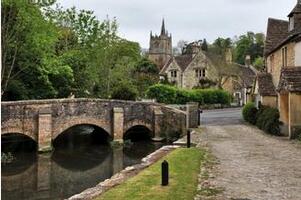Throughout the modern, thinking world, but especially in Britain, men of learning ventured into the countryside to do a little "stone-breaking," as they called it. It was a pursuit taken seriously, and they tended to dress with appropriate gravity, in top hats and dark suits, except for the Reverend William Buckland of Oxford, whose habit it was to do his fieldwork in an academic gown.
在整个近代思想界,尤其在英国,有学问的人都会下乡去干一点他们所谓的"敲石头"的活儿。这项工作干得还一本正经。他们往往打扮得很有吸引力:头戴高顶大礼帽,身穿黑色套装。只有牛津大学的威廉·巴克兰牧师是个例外,他习惯于穿博士服做野外工作。

The field attracted many extraordinary figures, not least the aforementioned Murchison, who spent the first thirty or so years of his life galloping after foxes, converting aeronautically challenged birds into puffs of drifting feathers with buckshot, and showing no mental agility whatever beyond that needed to read The Times or play a hand of cards. Then he discovered an interest in rocks and became with rather astounding swiftness a titan of geological thinking.
野外吸引了许多杰出人士,尤其是上面提到的默奇森,他大约花了前半生近30年时间来骑着马追赶狐狸,用猎枪把空中飞行的鸟儿变成一簇簇飘扬的羽毛。除了阅读《泰晤士报》和打一手好牌以外,他没有显示出任何会动脑子的迹象。接着,他对岩石发生了兴趣,以吃惊的速度一跃成为地质学思想界的巨人。











